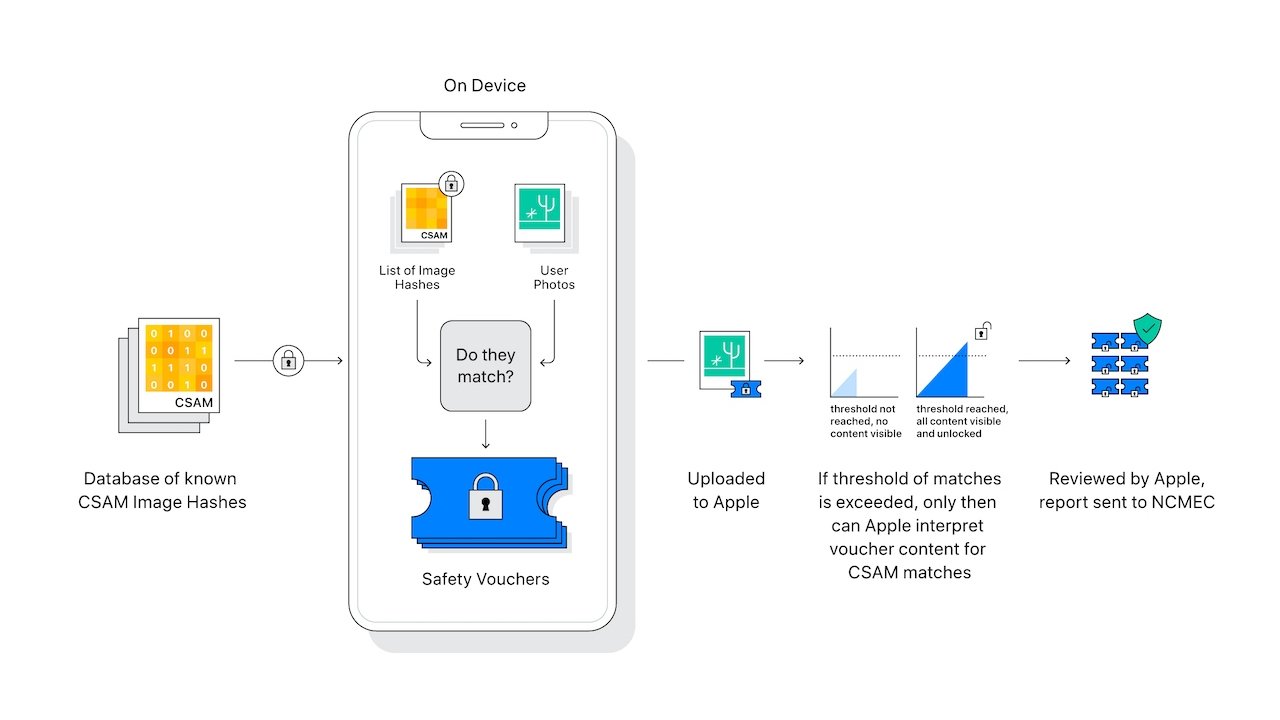
A pair of Princeton researchers claim that Apple's CSAM detection system is dangerous because they explored and warned against similar technology, but the two systems are far from identical.
Jonathan Mayer and Anunay Kulshrestha recently penned an op-ed for the Washington Post detailing some of their concerns about Apple's CSAM detection system. The security researchers wrote that they had built a similar system two years prior, only to warn against the technology after realizing its security and privacy pitfalls.
For example, Mayer and Kulshrestha claim that the service could be easily repurposed for surveillance by authoritarian governments. They also suggest that the system could suffer from false positives, and could be vulnerable to bad actors subjecting innocent users to false flags.
Additionally, concerns that a government could easily swap in a database full of dissident speech don't pan out. Apple's database contains hashes sourced from at least two child safety organizations in completely different jurisdictions. This provides protection against a single government corrupting a child safety organization.
Additionally, such a scheme would need to rely on Apple's human auditors to also be collaborators. Apple says flagged accounts are checked for false positives by human auditors. If Apple's team found accounts flagged for non-CSAM material, Apple says they'd suspect something was amiss and would stop sourcing the database from those organizations.
False positives are also incredibly rare on Apple's systems. The company says there's a one-in-a-trillion chance of a falsely flagged account. Again, even if an account is falsely flagged, the presence of CSAM must be confirmed before any report is generated to child safety organizations.
There are also protections against a bad actor sending CSAM to an innocent person. The Apple system only detects collections of CSAM in iCloud. Unless a user saves CSAM to iCloud themselves, or their Apple account is hacked by a sophisticated threat actor, then there's little chance of such a scam working out.
Additionally, users will be able to verify that the database of known CSAM hashes stored locally on their devices matches the one maintained by Apple. The database also can't be targeted — it applies to all users in a specific country.
Apple's system also relies on client-side scanning and local on-device intelligence. There's a threshold for CSAM too — a user needs to pass that threshold to even get flagged.
In other words, the two security researchers built a system that only vaguely resembles Apple's. Although there might be valid arguments to be made about "mission creep" and privacy, Apple's system was built from the ground up to address at least some of those concerns.
"danger" - Google News
August 21, 2021 at 03:58AM
https://ift.tt/3kbWku7
Researchers who built rudimentary CSAM system say Apple's is a danger - AppleInsider
"danger" - Google News
https://ift.tt/3bVUlF0
https://ift.tt/3f9EULr
No comments:
Post a Comment